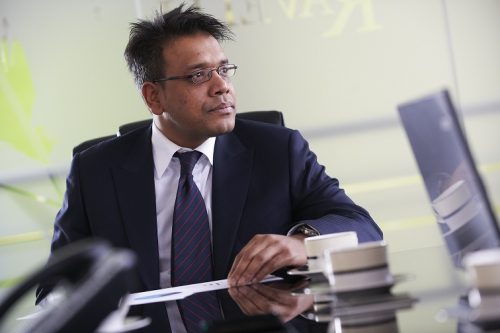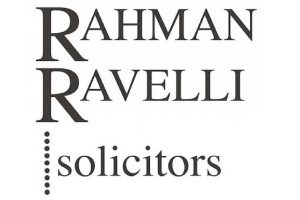Defending yourself against allegations of business crime

Aziz Rahman, founder of award-winning business crime solicitors Rahman Ravelli, outlines how individuals and corporates should respond when claims of white-collar crime are made.
Allegations of business crime are not uncommon. In recent weeks, to pick just a few examples, the Serious Fraud Office has sought a retrial of three Tesco executives over the company’s profits scandal, Barclays has been charged over its 2008 Qatar-backed refinancing and an ex-international footballer was among three jailed for a multi-million pound football apprenticeship fraud.

If allegations are made, there is at best a suggestion of wrongdoing. There is no proof and any evidence will still have to be found by the authorities, whether it is the police, the Serious Fraud Office (SFO) or another agency doing the investigating.
Insufficient evidence will mean no prosecution. Section 4.4 of the Crown Prosecution Service’s Full Code Test states that prosecutors must be satisfied that there is sufficient evidence to provide a realistic prospect of conviction.
Scope
As allegations of business crime are often complex, any investigations can be lengthy. This gives plenty of scope for a defence team to challenge the assumptions made by investigators, the reliability of material the prosecution intends to use as evidence and the integrity or knowledge of the individual making the initial allegation.
Speaking from experience of many such cases, I can say that reliability of evidence is an area where allegations of business crime can often be challenged successfully. Such action can go a long way towards a case being dropped because of insufficient evidence under the Full Code Test.
This is rarely straightforward. If raids have been carried out, large amounts of potential evidence gathered and many people interviewed, prosecutors will be unwilling to drop what they see as the chance to bring charges for bribery, tax evasion, money laundering or any other business crime.
Challenge
An intelligent defence team, however, can challenge arguments made against the corporate or individual they represent by:
* Arguing that there are legal grounds for material the prosecution wishes to be used as evidence not being admissible at a trial.
* Producing evidence of its own that disproves prosecution allegations.
* Using experts, such as forensic accountants, to establish inaccuracies or misjudgements in the prosecution’s assessment of the situation.
Such an approach can be used to try and prevent a case going to trial. Even if it does, this approach can then be used to challenge the prosecution case in court.
Analysis
Business crime investigations often involve scrutinising large amounts of paperwork and digitally-stored material, studying many people’s statements and looking at the conduct of an individual or corporate over a long period of time. But such analysis is valuable for defence solicitors.
The scale and complexity of many business crime investigations will mean that prosecutors often know they will struggle to prove some aspects of their case. An intelligent defence team that has analysed all aspects of the prosecution case will know how best to cast doubt it.
Business crime is an area of law that can bewilder those accused of it. Most people in business are not, after all, legal experts. But the right legal challenges to the allegations can bring success.








